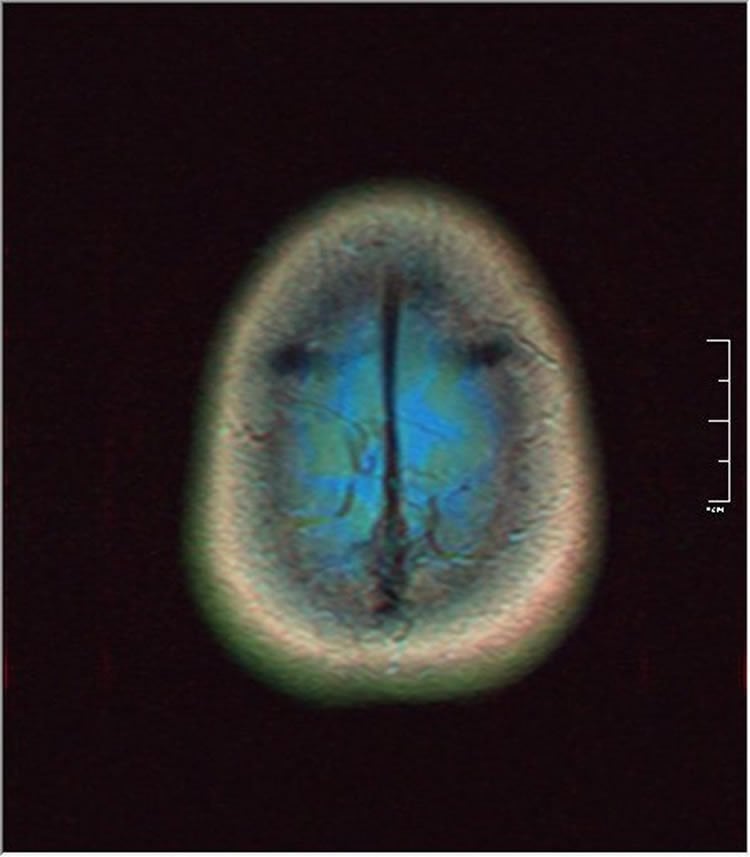Summary: UPDATE – Researchers have determined that those with a history of chicken pox infection have a 21% reduced risk of developing glioma brain cancer. The researchers hope that, in the future, the chicken pox vaccine may be able to be applied to brain cancer research.
The chicken pox is one of those pesky illness that affects kids and pains their parents, but it may offer some positive health benefits later in life, experts believe – a reduced risk for developing glioma.
In one of the largest studies to date, an international consortium led by researchers in the Dan L Duncan Comprehensive Cancer Center at Baylor College of Medicine reported an inverse relationship between a history of chicken pox and glioma, a type of brain cancer, meaning that children who have had the chicken pox may be less likely to develop brain cancer.
The Baylor team led by Dr. Melissa Bondy, a McNair Scholar and associate director for cancer prevention and population sciences at Baylor, and Dr. E. Susan Amirian, assistant professor in the Duncan Cancer Center at Baylor, reported their results in the journal Cancer Medicine.

In the study, the team reviewed information from the Glioma International Case-Control Study is a large, multi-site consortium with data on 4533 cases and 4171 controls collected across five countries.
They found a 21 percent reduced risk of developing glioma with a positive history of chicken pox. Furthermore, they identified the protective effective was greater in higher grade gliomas.
The large study validates earlier studies showing this link, Bondy said. “It provides more of an indication that there is some protective benefit from having the chicken pox,” she said. “The link is unlikely to be coincidental.”
In the future, scientists may be able to apply the chicken pox vaccine to brain cancer research.
Others who contributed to the work include Michael E. Scheurer, Renke Zhou, Georgina N. Armstrong, Ching C. Lau all with Baylor College of Medicine; Margaret R. Wrensch with the University of California; Daniel Lachance and Robert B. Jenkins with the Mayo Clinic Comprehensive Cancer Center; Sara H. Olson and Jonine L. Bernstein with Memorial Sloan-Kettering Cancer Center; Elizabeth B. Claus with Yale University School of Medicine and Brigham and Women’s Hospital; Jill S. Barnholtz-Sloan with Case Western Reserve University School of Medicine; Dora Il’yasova and Joellen Schildkraut with Duke University Medical Center; Francis Ali-Osman with Duke University Medical Center; Siegal Sadetzki with Gertner Institute and Tel-Aviv University; Ryan T. Merrell with NorthShore University HealthSystem, Faith G. Davis with the University of Alberta; Rose Lai with The University of Southern California Keck School of Medicine; Sanjay Shete with the The University of Texas MD Anderson Cancer Center; Christopher I. Amos Norris Cotton Cancer Center; and Beatrice S. Melin with Umeå University.
Funding Funding for this work was provided by the National Cancer Institute (Grant/Award Number: ‘P30CA125123_, ’P50097257_, ’R01CA139020_, ’R01CA52689_).
Source: Graciela Gutierrez – Baylor College of Medicine
Image Credit: The image is credited to Nevit Dilmen and is licensed CC BY SA 3.0.
Original Research: Full open access research for “History of chickenpox in glioma risk: a report from the glioma international case–control study (GICC)” by E. Susan Amirian, Michael E. Scheurer, Renke Zhou, Margaret R. Wrensch, Georgina N. Armstrong, Daniel Lachance, Sara H. Olson, Ching C. Lau, Elizabeth B. Claus, Jill S. Barnholtz-Sloan, Dora Il’yasova, Joellen Schildkraut, Francis Ali-Osman, Siegal Sadetzki, Robert B. Jenkins, Jonine L. Bernstein, Ryan T. Merrell1, Faith G. Davis, Rose Lai, Sanjay Shete, Christopher I. Amos, Beatrice S. Melin and Melissa L. Bondy in Cancer Medicine. Published online March 13 2016 doi:10.1002/cam4.682
Abstract
History of chickenpox in glioma risk: a report from the glioma international case–control study (GICC)
Varicella zoster virus (VZV) is a neurotropic α-herpesvirus that causes chickenpox and establishes life-long latency in the cranial nerve and dorsal root ganglia of the host. To date, VZV is the only virus consistently reported to have an inverse association with glioma. The Glioma International Case-Control Study (GICC) is a large, multisite consortium with data on 4533 cases and 4171 controls collected across five countries. Here, we utilized the GICC data to confirm the previously reported associations between history of chickenpox and glioma risk in one of the largest studies to date on this topic. Using two-stage random-effects restricted maximum likelihood modeling, we found that a positive history of chickenpox was associated with a 21% lower glioma risk, adjusting for age and sex (95% confidence intervals (CI): 0.65–0.96). Furthermore, the protective effect of chickenpox was stronger for high-grade gliomas. Our study provides additional evidence that the observed protective effect of chickenpox against glioma is unlikely to be coincidental. Future studies, including meta-analyses of the literature and investigations of the potential biological mechanism, are warranted.
“History of chickenpox in glioma risk: a report from the glioma international case–control study (GICC)” by E. Susan Amirian, Michael E. Scheurer, Renke Zhou, Margaret R. Wrensch, Georgina N. Armstrong, Daniel Lachance, Sara H. Olson, Ching C. Lau, Elizabeth B. Claus, Jill S. Barnholtz-Sloan, Dora Il’yasova, Joellen Schildkraut, Francis Ali-Osman, Siegal Sadetzki, Robert B. Jenkins, Jonine L. Bernstein, Ryan T. Merrell1, Faith G. Davis, Rose Lai, Sanjay Shete, Christopher I. Amos, Beatrice S. Melin and Melissa L. Bondy in Cancer Medicine. Published online March 13 2016 doi:10.1002/cam4.682







